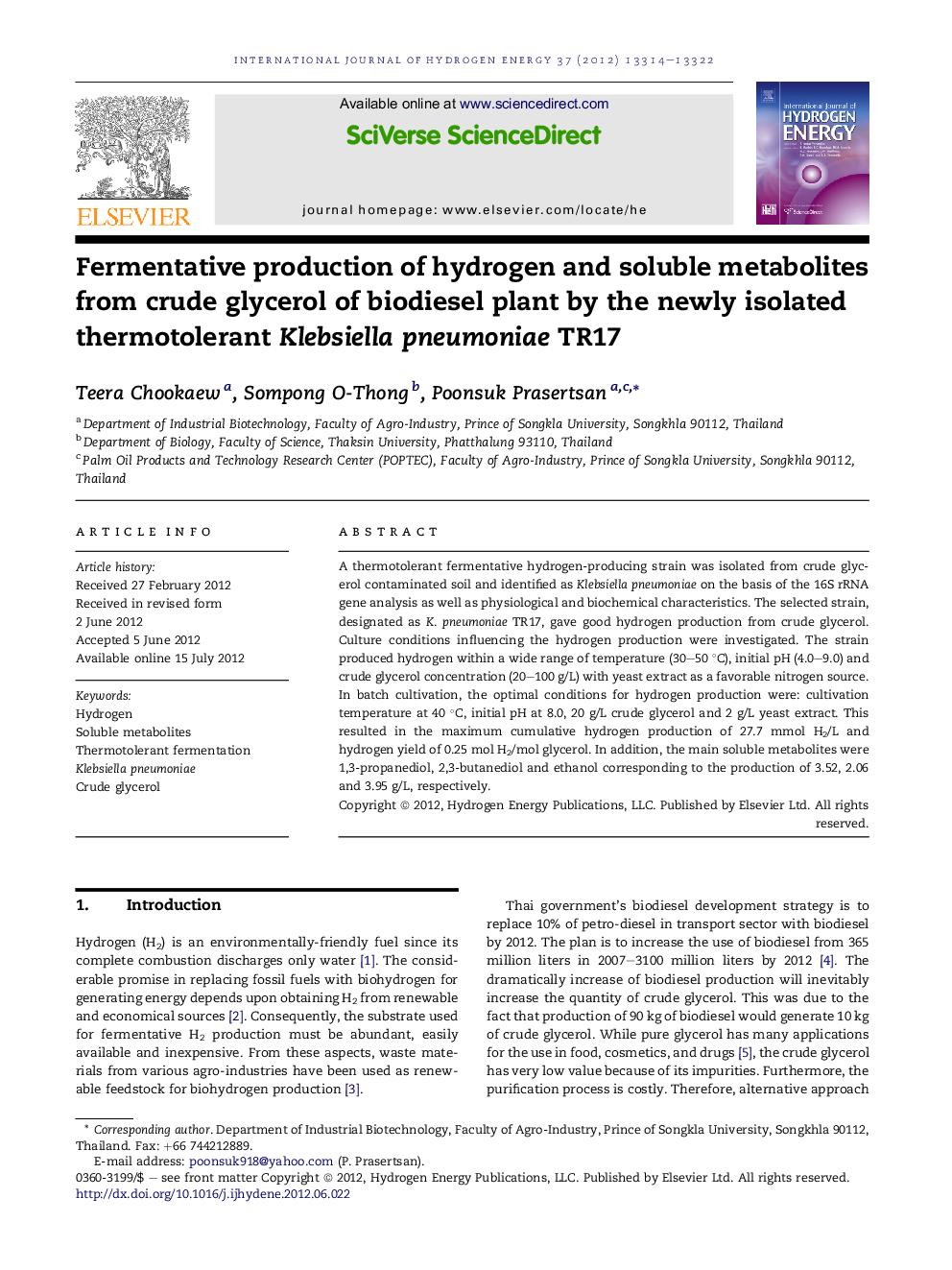| Article ID | Journal | Published Year | Pages | File Type |
|---|---|---|---|---|
| 1282225 | International Journal of Hydrogen Energy | 2012 | 9 Pages |
A thermotolerant fermentative hydrogen-producing strain was isolated from crude glycerol contaminated soil and identified as Klebsiella pneumoniae on the basis of the 16S rRNA gene analysis as well as physiological and biochemical characteristics. The selected strain, designated as K. pneumoniae TR17, gave good hydrogen production from crude glycerol. Culture conditions influencing the hydrogen production were investigated. The strain produced hydrogen within a wide range of temperature (30–50 °C), initial pH (4.0–9.0) and crude glycerol concentration (20–100 g/L) with yeast extract as a favorable nitrogen source. In batch cultivation, the optimal conditions for hydrogen production were: cultivation temperature at 40 °C, initial pH at 8.0, 20 g/L crude glycerol and 2 g/L yeast extract. This resulted in the maximum cumulative hydrogen production of 27.7 mmol H2/L and hydrogen yield of 0.25 mol H2/mol glycerol. In addition, the main soluble metabolites were 1,3-propanediol, 2,3-butanediol and ethanol corresponding to the production of 3.52, 2.06 and 3.95 g/L, respectively.
► A thermotolerant H2-producing was isolated from glycerol contaminated soil. ► A thermotolerant strain TR17 identified as Klebsiella pneumoniae. ► Temperature of 40 °C and initial pH of 8.0 were optimal for H2 production. ► Crude glycerol of 20 g/L with 2 g/L of yeast extract gave the best H2 production. ► H2 production of 27.7 mmol/L and H2 yield of 0.25 mol/mol-glycerol were obtained.
